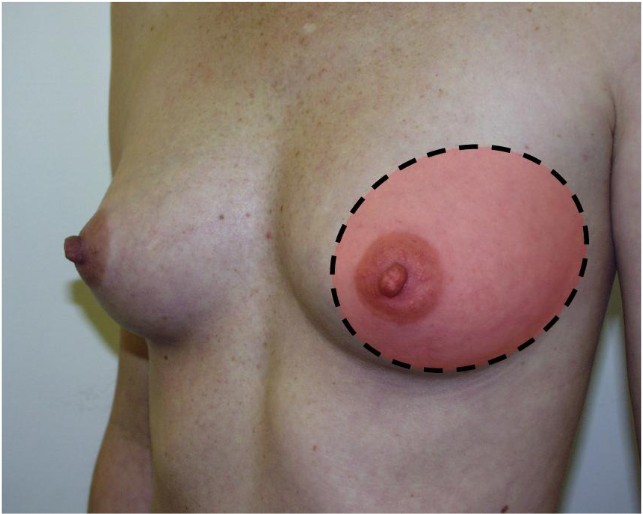|
Cyclic Breast Pain |
 Cyclic Breast Pain |
During the days leading up to the menstrual flow, the breasts normally are somewhat engorged and may be somewhat tender. Following the onset of menstrual flow, these changes spontaneously resolve. If the tenderness is more than mild or is clinically bothersome, it is called cyclic breast pain or mastodynia. If examined during this time, these women also often have significantly enhanced nodularity of the breast tissue. the combination of cyclic breast pain and symmetrically thickened nodularity of the breast tissue is often called fibrocystic disease (misnamed because it's not really a disease) or fibrocystic breast changes. While not dangerous, women with cyclic mastodynia find it annoying and in its most severe form, interferes with some normal activities. Some women find that by reducing or eliminating their intake of caffeine (coffee, tea, cola drinks) and taking Vitamin E supplements (400 IU daily) has seemed to improve their symptoms. Whether such improvement is pharmacologic or placebo in nature is still under debate. Any pharmacologic approach that suppresses ovulation will be very helpful in treating cyclic mastodynia. Among these, birth control pills are the simplest. Taking BCPs in the usual fashion generally improves the pain significantly. For those who still experience significant pain, continuous birth control pills will usually suppress the pain completely. Also effective, by virtue of ovulation inhibition, are depot medroxyprogesterone acetate, Lupron, or Danocrine, the latter two usually justified only in severe cases due to their significant side effects. |